27th Cologne Solar Colloquium: Solar Thermal Energy on the Rise
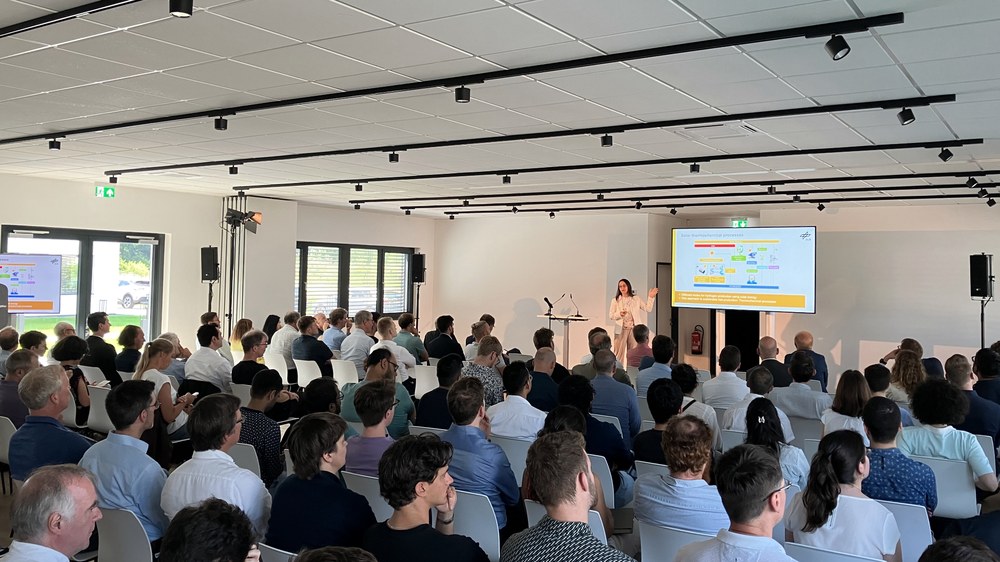
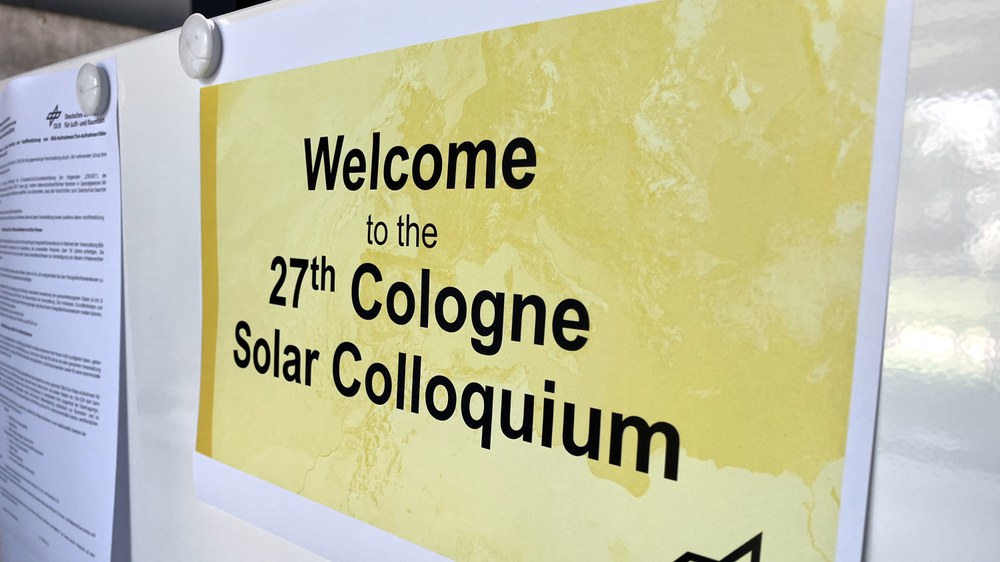
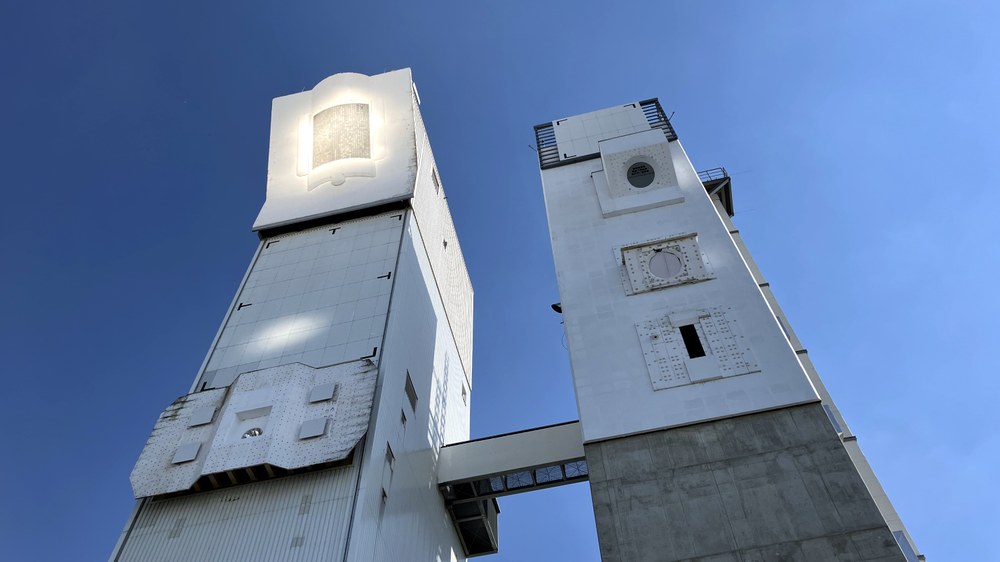
"Solar Thermal Energy on the Rise - Perspectives for Heat Transition and Sustainable Fuels". This was the motto of the 27th Cologne Solar Colloquium, which was held for the first time this year as a face-to-face event in the new premises of the DLR Institutes of Future Fuels and Solar Research at the Jülich site.
Throughout the day, speakers from research and industry provided a highly topical insight into the potential of solar thermal energy for heat generation in various application areas and its role in the production of sustainable fuels in cooperation with industrial companies.
As an annual forum, the Solar Colloquium offers the opportunity to present various highlights from the research programme of the DLR Institutes of Solar Research and Future Fuels and their partners on a specific topic. This year, 130 participants attended the event.
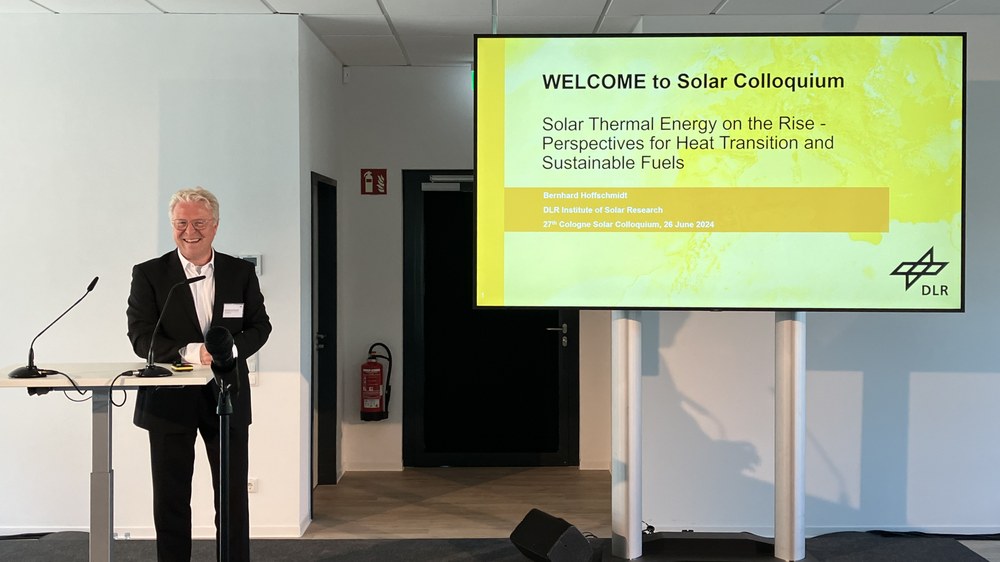
Institute Director Prof. Bernhard Hoffschmidt opened the event. In his welcoming address, he gave an insight into the latest trends in the field of concentrating solar technologies. Institute Director Prof. Robert Pitz-Paal then presented the first part of the programme on the latest trends in concentrating solar thermal energy.
The first presentation was given by Dr. Joachim Krüger, President of the European Solar Thermal Energy Association (ESTELA). In his presentation, he described the situation of CST (Concentrating Solar Technologies) in Europe and the increasing acceptance based on a number of examples. The colloquium began with this outlook on future developments in the scene and technical questions from the plenary session.
Dr.-Ing. Peter Heller, Head of Department Qualification at the Institute of Solar Research, spoke about new developments in qualification and measurement technology for the solar industry. He presented research work on optical condition monitoring for solar fields using drones and AI methods to accelerate and automate the detection of quality-related parameters. He also described advances in nowcasting weather prediction, most importantly clouds, as well as new instrument developments for radiation. An insight into the laboratory facilities, focussing on the accredited QUARZ® laboratory and other test infrastructure for solar components, rounded off the presentation.
Dr. Gerhard Weinrebe, General Manager CSP at GlassPoint, noted in his presentation that although PV and batteries have conquered the electricity market, there is still the often neglected heating market, where concentrating solar thermal energy is three times more efficient, both in terms of solar-to-heat efficiency and in terms of land use efficiency. The heating market is significantly larger than the electricity market. The addressable market for systems that deliver heat below 450 degrees Celsius is responsible for ten per cent of global greenhouse gas emissions. The solar thermal community must work together to serve this market and reduce greenhouse gas emissions accordingly.
The next presentation by Stefano Giuliano, DLR Institute of Solar Research, dealt with the possibility of realising the defossilisation of the energy supply of a chemical production facility through electrification with green electricity, conversion to green fuels or solar thermal energy. In a study presented, it was found that a combination of these technologies into hybrid systems together with thermal energy storage systems has the lowest energy generation costs and can respond optimally to market changes in the future. In order to find the best solution under individual boundary conditions, extensive techno-economic optimisation is required.
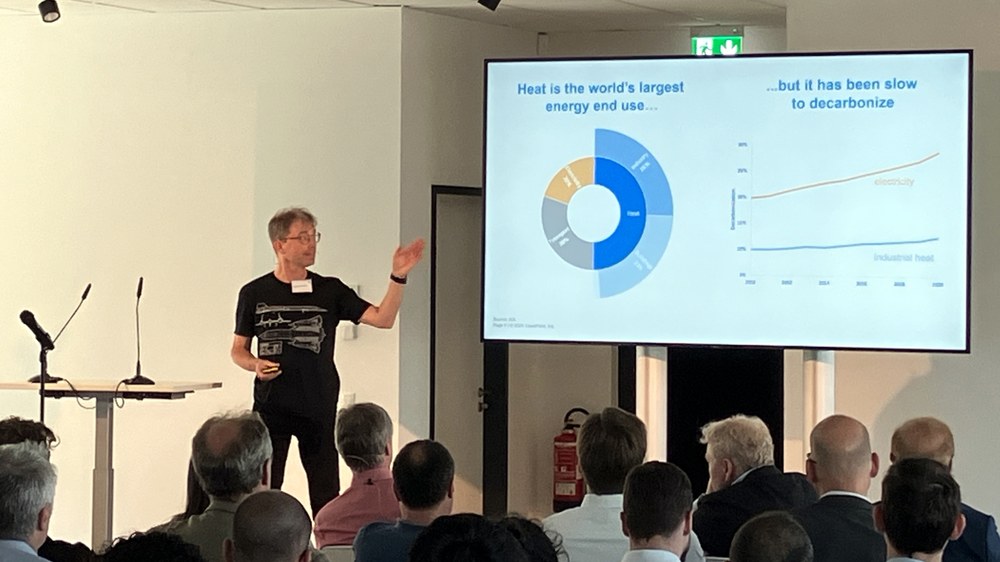
Institute Director Prof. Christian Sattler from the DLR Institute of Future Fuels then introduced the second part of the event, which focussed on the research and production of solar fuels in cooperation with industrial companies.
The first presentation was given by Nathalie Monnerie, Head of Department at the DLR Institute of Future Fuels. She emphasised that the solar-powered splitting of CO2 and H2O via solar thermochemical cycles is a promising approach for fuel production and carbon neutrality. The resulting mixture of CO and H2 forms synthesis gas that can be further processed into synthetic fuels, for example sustainable fuels for the aviation sector. The resulting solar fuels are a sustainable and renewable alternative to the conventional fossil fuel-based processes used to produce many fuels, chemicals and materials. The presentation gave an overview of the most important solar thermochemical cycles, which open up a wide range of application scenarios in the field of solar process engineering.
Dennis Thomey, Head of Department at the DLR Institute of Future Fuels, then spoke about the experimental demonstration of solar chemical processes and components. Aspects of his presentation included the combination of chemistry and concentrating solar technologies, the two-step redox thermochemical cycle, new design ideas for moving particles for continuous hydrogen production, solar sulphuric acid splitting and a demonstration of the Hybrid Sulphur Cycle in the HySelect project.
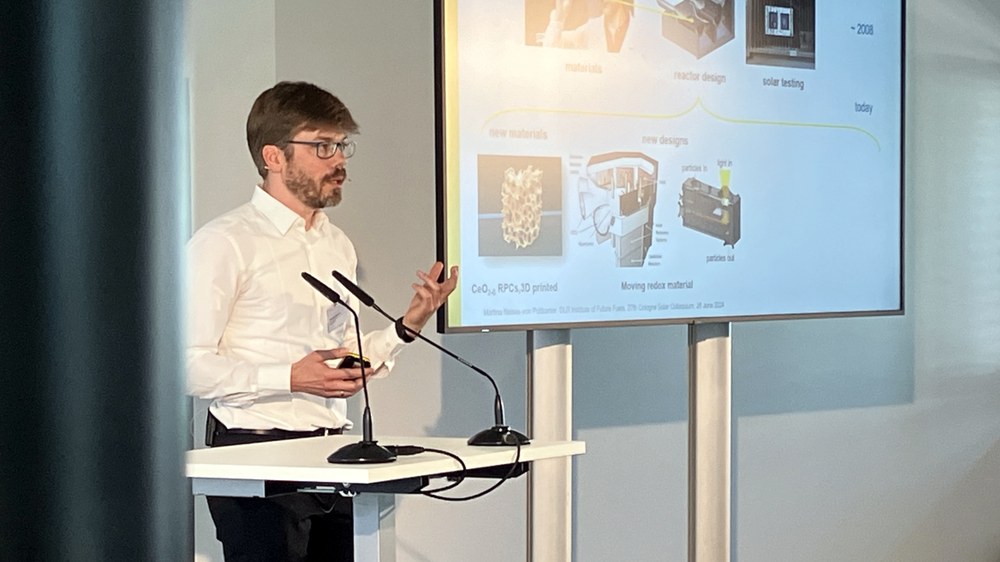
Johannes Daniel Kretschmann, Projects Director at Fichtner GmbH & Co. KG, rounded off the second part of the programme with his presentation on CST for process heat and solar fuels. Using global project examples, such as a CST study on the value proposition for Australia, 100 per cent renewable heat supply (medium temperature) for large scale off-taker in the Middle East or a combined heat and power supply for solar methanol production, he highlighted key features of the technology.
After a short break, Patrick Hilger, Managing Director of Synhelion Germany , presented the recently constructed and newly inaugurated DAWN plant at Brainergy Park Jülich at the end of the event. Following previous technological development steps, which were realised at DLR, the industrial-scale plant will now produce commercial solar fuels such as synthetic kerosene and demonstrate technological market readiness.
After the impressive presentation, the guests of the solar colloquium had the immediate opportunity to visit the nearby DAWN facility, as well as the DLR Solar Towers. This was followed by a lively exchange of expertise in the new premises of the DLR institutes.
We would like to thank all speakers for their exciting presentations and all guests for their participation and the subsequent professional dialogue. We look forward to seeing you again next year!
